Digital Communities
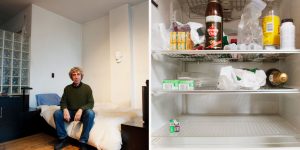
Virtual tour through the exhibition “Future Food. What will we eat tomorrow?”
Visitors can virtually explore the special exhibition Future Food. What will we eat tomorrow? that is held at the Deutsche Hygiene-Museum Dresden from May 2020 to Feb 2021. The exhibition takes up on one of the most urgent questions of the 21st century: how can we create the future of food facing the global challenges?
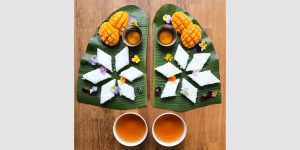
How do regional food systems work?
In times of multiple crises, the issue of food security is vividly debated. The panel discussion addresses opportunities and challenges of regional food production and supply with a focus on Dresden, Saxony.

The Crying Book with Heather Christle and Performance by Gary Motley
Heather Christle, Gary Motley
The Crying Book is a deeply personal tribute to the fascinating strangeness of tears and the unexpected resilience of joy. Why do we cry? How do we cry? Heather Christle has just lost a dear friend to suicide and now must reckon with her own depression and the birth of her first child. As she faces her grief and impending parenthood, she decides to research the act of crying: what it is and why people do it. She researches tear-collecting devices and explores the role white women’s tears play in racist violence. Motley performs Someday Sunday as Christle reads from her first book of nonfiction, The Crying Book.
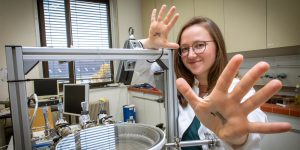
Reparatur der Zukunft
Ö1
Mit der Initiative *Reparatur der Zukunft* will Ö1 die Fragen der 20- bis 30-Jährigen aufgreifen und ihren Ideen mehr Raum geben. Ars Electronica präsentiert zwei Projekte zu diesem Thema
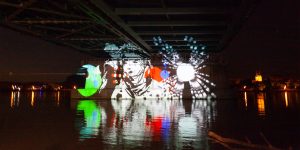
Tagtool Connect
Bei ihrem vierten Auftritt beim Festival Ars Electronica präsentieren OMAi die erste öffentliche Online-Multiplayer-Tagtool-Session, bei der sich ausgewählte internationale Künstler*innen über das Internet zusammenschließen, um spontane Projektionskunst zu schaffen.

Viral Fiction
Forms of Ownership (INT)
Geld und Recht prägen einen großen Teil unseres Alltags. In einer Hyperbel der sozialen Skulptur ist unsere künstlerische Praxis darin verankert, sich diesen Systemen als künstlerische und kreative Medien an sich zu nähern.
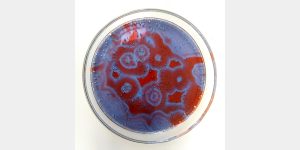
STEAM Popup Lab
JKU Linz School of Education (AT)
STEAM Popup Lab bietet eine virtuelle Reise, die uns erlaubt, die Bedeutung der Muster um uns herum zu verstehen. Muster finden sich überall: in Fraktalen in der Natur, in den Blutgefäßen im menschlichen Körper genauso wie in den oszillierenden Signalen, die von den Sensoren eines Telefons erzeugt werden. Sie können Roboter steuern, Origami-Muster falten, das Signal einer Spielplatzschaukel messen, an einer Live-Chemielaborsitzung teilnehmen und vieles mehr.

Hybrid Tech-ila: Imagining landscapes through neural networks.
GAN breeder, Pedro H. Baez by AI/THEIA
Hybridization of art is -more and more- a common subject for artists seeking inspiration and tools for extending their imagination. GAN breeder is an open source Neural Network that processes images and reinterprets them to produce new results. By choosing a selection of images, the curator can partake onto a different result.

COSA Connector Tour Part 1
Everest Pipkin (US)
Engage with the first of three playlists from our COSA Connectors, exploring open-source tools for artists. We have curated useful selections from across the internet of free software to help you express your creative side. The guided tours will focus on what the tool can do, what kinds of projects you might use it for, and quick tips and tricks for getting started.
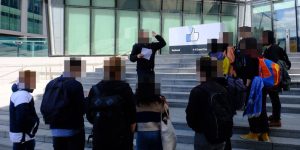
An Online Tour of Dublin’s Tech Infrastructure
Dublin is host to the European headquarters of many of the most powerful and influential tech companies of the modern era, and has become an important strategic location within the context of debates surrounding data sovereignty, privacy and security. By connecting our own personal interactions on digital platforms to the corporate offices in the city centre and to the data centres that surround the city, this tour critically engages with these debates, whilst also reflecting on our relationship with our personal data as it passes through the many visible and invisible networks that surround us.
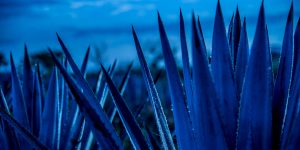
Reset-Tech-ila Summit
Secretaría de Innovación, Ciencia y Tecnología del Estado de Jalisco, Majo Castelazo Andre
The agricultural regions are presenting problems to enter the digital reality; at the level of tourism, for the transmission of knowledge and interactivity in a non-physical way, at the same time they represent the change of mentality towards a sustainable and future production.
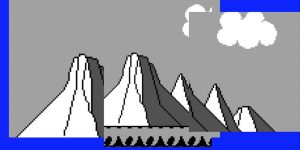
Liusa Wang presents aaajiao
LIUSA WANG (FR), Paris
In this video bot., the artist presents a portrait of memory built on a machine’s assumptions of how people would think a machine interprets the mind. He borrows aesthetics from existing role-playing action games such as Mother3, Adventureland, Undertale, and ROM, to create awareness of our world in 2018 – a perhaps slightly dystopian impression – and to introduce a conception of memory that sets itself apart from present understandings.

Tech-ila Master Craftsman
Oficina de Visitante y Convenciones (OFVC), Cámara Nacional de la Industria del Tequila (CNIT), Zonaga and Mad Machina
The master class is an approach to the materials, hands and stories behind each Tequila Máster "artisan", a product made by years of history and essence accompanied by new technological resources that will make understanding the future of How do we produce, transmit and collect culture? How do we create ancestral products for the future? How do we mold our worldview into an object?
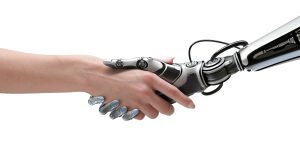
Citizens' Think-in on Artificial Intelligence
Artificial Intelligence (AI) is playing a growing role in our lives. Machine learning tools help determine the ads you see online, the news you read and the products you purchase. Every time we send a text, use a credit card or sync a wearable device we are sharing personal information about ourselves. But what are the social consequences of AI? How is our information being used? Who is setting the policies and regulation? And how can AI affect our privacy and civil liberties?
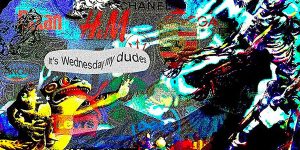
MEME MANIFESTO
Clusterduck (IT/DE/FR)
Based on the aesthetics of online conspiracy theorists, ancient grimoires, and cutting edge contemporary digital design, MEME MANIFESTO strives to be a manual for memetic production, a highly refined documentation of the contemporary memetic landscape and an art book about the hidden sides of the Internet. The project seeks to describe the personal experience of someone who is approaching meme culture, affirm the importance and power of memes, and give everyone the tools to harness this power.
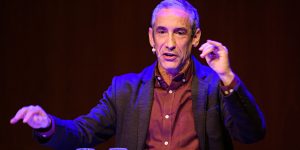
Zero Footprint
Douglas Rushkoff
In the 2020 festival “Zero Footprint”, subtitled “Living and Connecting on a Damaged Earth”, IMPAKT will focus on the climate crisis through the eyes of artists and radical thinkers. How can we create structural change that can serve the many instead of the few?
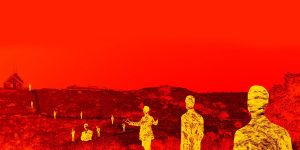
Influencer
oneseconds (NL)
A 20 minute online interactive performance where the audience decides the faith of the protagonist. Influencer questions the autonomy of the human being in modern times. How far are we influenced by the majority?

Abducting Europa - Live artist talks
Simon Denny (NZ/DE), Andy King (UK), Szabolcs KissPál (HU), Annika Larsson (SE/DE), Liliana Piskorska (PL), Jonas Staal (NL/GR)
Artists from the “Abducting Europa” exhibition will discuss their work in a series of artists talks, live and pre-recorded. Political fantasy, from myths of national rebirth to the esoteric dimensions of deep web conspiracy theories, these talks will discuss the use and abuse of history, the lure of a Golden Age, and alternative visions on Europe.
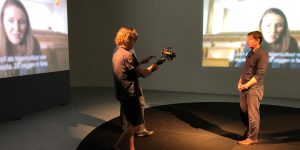
Radicalization by Design - Panel discussion
Joanna Bryson (UK/DE), Bharath Ganesh (US/NL), Richard Rogers (UK/NL), Sahana Udupa (DE). Moderation: Arjon Dunnewind (NL) and Marc Tuters (CA/NL)
Live panel discussion - Speakers from the “Radicalization by Design” web project and other guests will discuss issues of freedom of speech, of extreme speech and deplatforming. Recently the big corporate social media platforms have come under immense pressure to clean up their act.
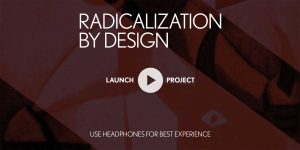
Radicalization by Design - Webproject
Florian Cramer (DE/NL), Bharat Ganesh (US/NL), Jon Rafman (CA/US), Richard Rogers (US/NL), Dimitri Tokmetzis (NL)
Webproject - Radicalization by Design will discuss the question of whether our media are radicalizing us. Is social media tearing society apart? How do trolls, conspiracy theories, memes and fringe platforms impact politics today?


